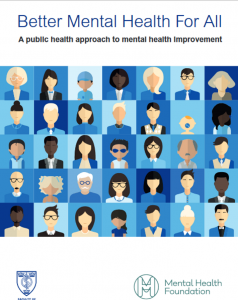The iHV is delighted to be able to share the outputs from working with Greater Manchester and North West Coast iHV PIMH Champions Forum, the Institute of Psychiatry, Psychology and Neuroscience, King’s College London and others to develop the research base for eating disorders in the perinatal period. We are excited to be supporting the launch of the “Eating Disorders in Pregnancy” animation through a training event on 28 February 2018 (during Eating Disorders week).
Eating Disorders are a serious mental illness, characterised by disturbance of eating that significantly impairs health and psychosocial functioning.
They include:
- Anorexia Nervosa
- Bulimia Nervosa
- Binge Eating Disorder
- and Other Specified Feeding and Eating Disorders
They are often associated with depression and anxiety, and have a number of physical, health complications as well.
Eating Disorders can affect people of all ages, gender and cultural background. It is thought that around 7% of women are thought to have an eating disorder in pregnancy and they can have serious consequences for the mother and her baby.
Health visitors are ideally placed to identify and support pregnant women and new mothers who have eating disorders. Involvement with families, right from the antenatal period through until children reach school age, enables a unique opportunity to build strong therapeutic relationships offering the continuity of care that mothers say they want from their healthcare professionals.
The “Eating Disorders in Pregnancy” training event, including the animation launch, is free to attend and we very much look forward to seeing you there!
Event details
Date: 28 February 2018
Time: 4pm – 6pm
NEW VENUE: the event has been moved to a larger venue so that more people can attend
Wolfson Lecture Theatre, Institute of Psychiatry, Psychology & Neuroscience, King’s College London,
16 De Crespigny Park, Denmark Hill, London SE5 8AF
To book your free place






